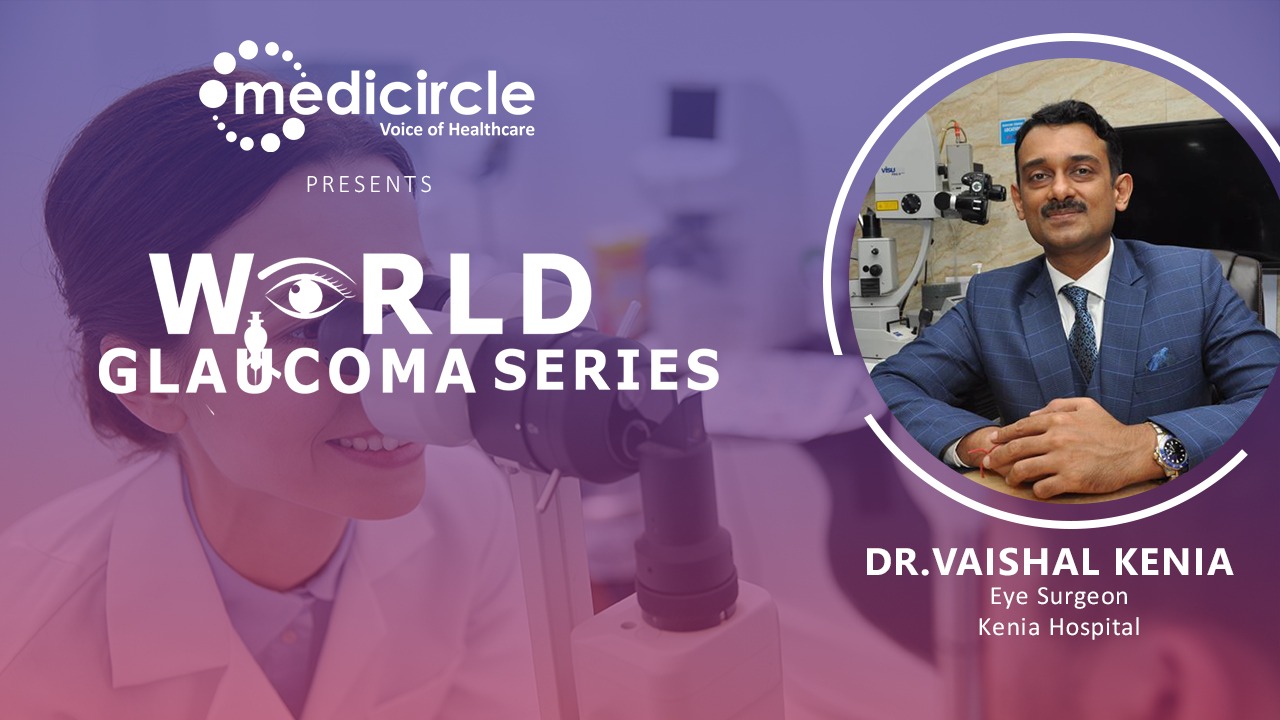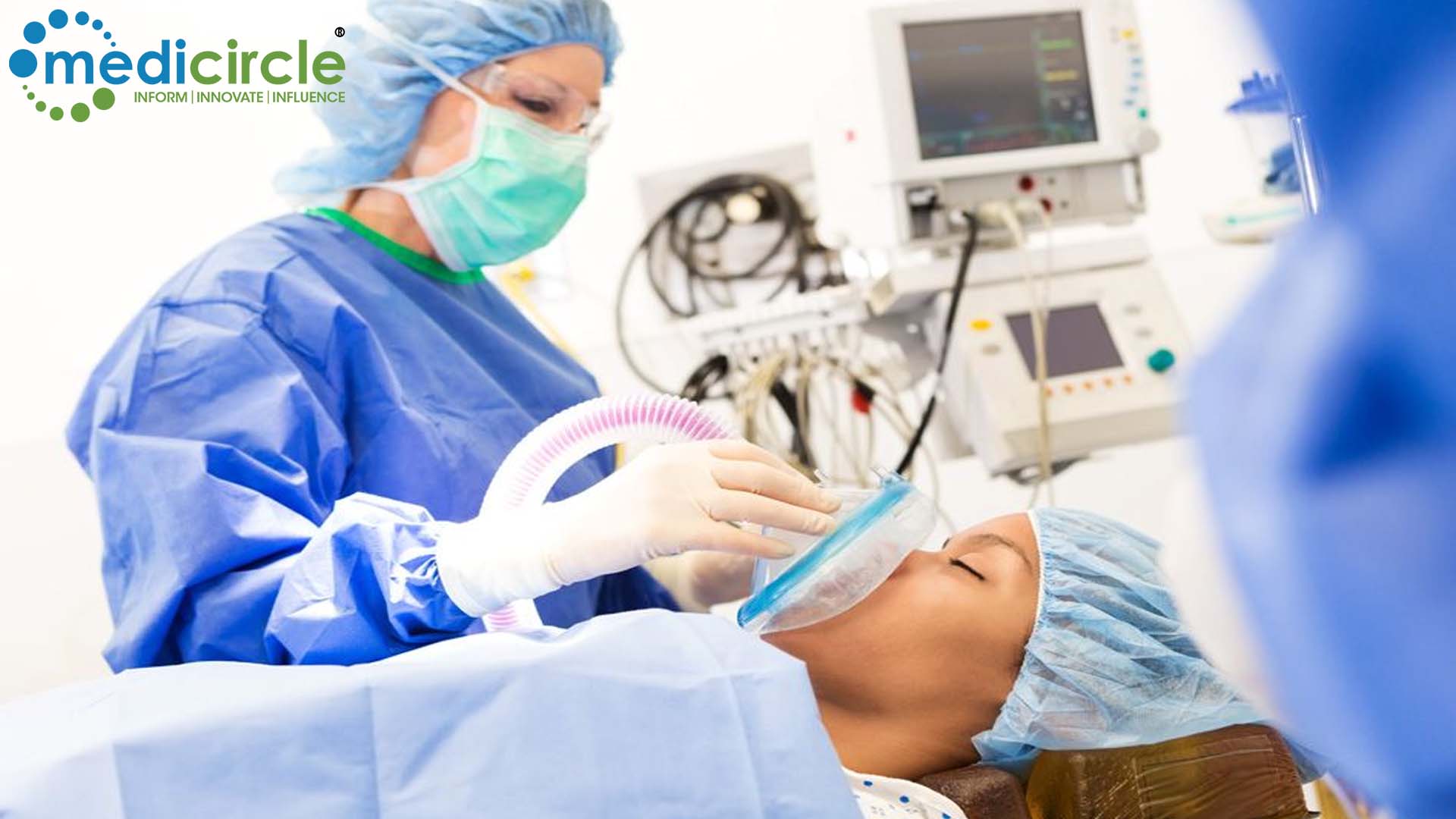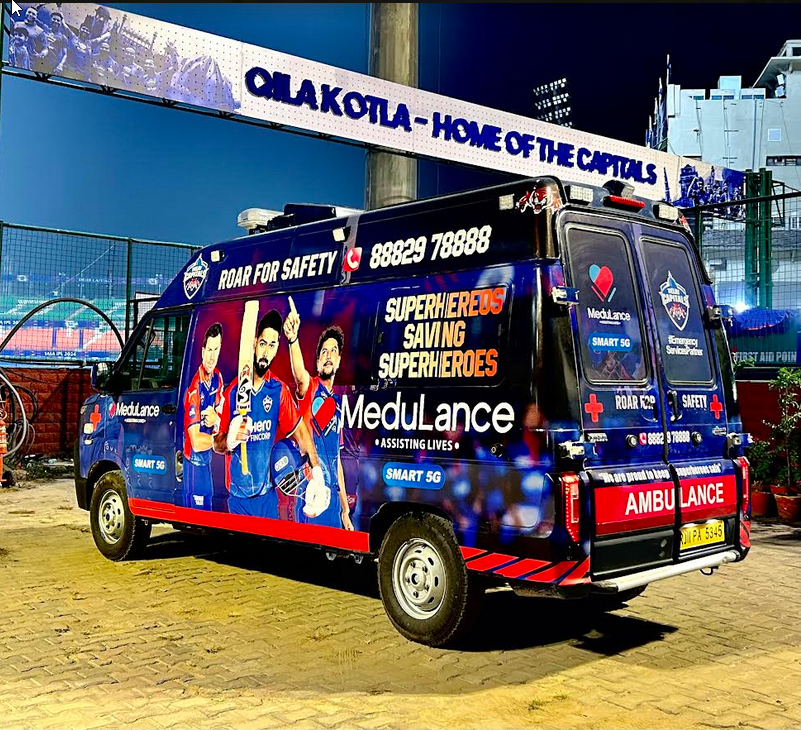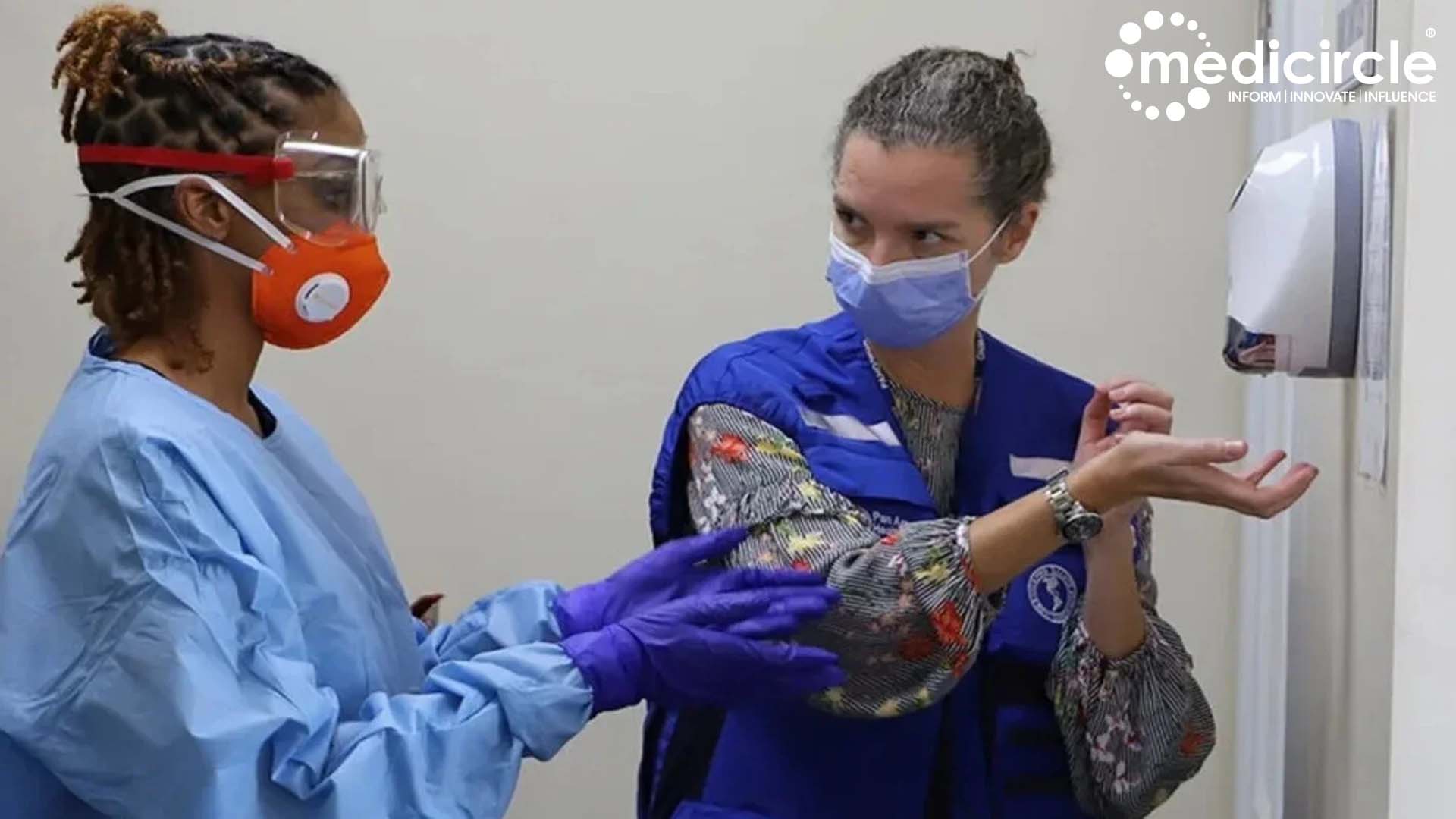Good vision is a key factor for living a healthy happy life. The earlier we start looking after the health of our eyes, the better chance of maintaining good vision throughout our lives. Vision problems can occur at any age, which is why regular eye examinations with an Ophthalmologist are important. Good vision isn't just about seeing well, it's worth living well. One such eye infection is Glaucoma. A glaucoma is a group of eye conditions, that damages the optic nerve, which is vital for good vision. Worldwide, glaucoma is a second leading cause of irreversible blindness. At Medicircle, we are conducting an awareness series on Glaucoma, with eminent Ophthalmologists for the world glaucoma day to boost awareness and educate people about eye health.
Dr. Vaishal Kenia has established his private practice over 15 years ago, Kenia Eye Hospital, which has its motto to provide the best comprehensive and affordable eye care under one roof. Dr. Vaishal is an executive board member of the Bombay Ophthalmologist Association and is also a member of several other Medical Honours Societies. He has also been a guest speaker at various conferences and seminars across the globe. He has always been innovative and brought the latest and best eye treatments from overseas.
Early Detection Corresponds to Lesser Damage
Dr. Vaishal advises, “today the world is going digital. In this time of pandemic, whether it is school students or working class, everyone is now working on laptops, desktop or mobile phones. The screen usage time has increased exponentially. So, dryness of the eyes and eye-related problems have also increased. To avoid this, one has to visit Ophthalmologist more frequently than before at least once in six months, and need to get their eyes checked. The whole idea of getting your eyes checked is to catch the disease early, more early you catch the disease the less damage done to the eyes.
The eye is the only organ in the body where you can directly see the blood vessels with the help of retinal examination. So, one can easily identify other damages occurred in the kidneys, heart, brain by just looking at the changes occurring in the retina’s blood vessels,” informs Dr. Vaishal.
Getting Your Spectacles Checked is Not the Complete Eye Check-up
Dr. Vaishal stresses, “Just getting checked your number will not serve the purpose, a thorough examination of the eye is necessary. The eye surgeon would check not only the eye numbers, but he would also dilate your eyes or put drops in the eyes and dilate your pupils and will check the retina. The doctor will check everything from the front portion of the eye to the back portion of the eye. For example, glaucoma does not affect the central vision at an early stage, it affects the peripheral vision or the side vision. Slowly when it reaches its severe stage or end-stage, the centre vision is affected and then the patient comes to know about glaucoma. So, if you want to catch the disease early you have to get a prophylactic annual eye check-up done with your eye doctor.
Contraindications in Glaucoma
Dr. Vaishal listed out some factors which should be avoided –
“Posture of exercises or yoga - Certain yoga asanas should not be done where there is an increased blood flow to your head portion. With an increased blood flow there is an increased rise in the intraocular pressure.
Binge drinking - Avoid binge drinking as it has been found to increase or worsen glaucoma. Here binge drinking means drinking high quantity of water or liquid at a time.
Wearing neck ties, tight collars - High collared neckties would increase the pressure in the blood vessels in your neck, which would give a back pressure to your eye and this would also increase your eye pressure.”
Factors Affecting Glaucoma Treatment
Dr. Vaishal adds, “The treatment of glaucoma depends on the type of glaucoma, the severity of glaucoma, and the risk factor. Getting yourself checked by an eye surgeon at a regular interval of time is the first thing to do. If a doctor feels suspicious about glaucoma, he will do certain confirmatory tests. These confirmatory tests are like visual parametry which checks your field of vision, optic nerve analysis which checks fiber layer thickness, and a Gonioscopy by which a doctor will come to know whether you have primary open-angle glaucoma or primary narrow-angle glaucoma.
Primary open angle glaucoma – The first line of treatment is Yag laser.
Primary narrow angle glaucoma – Eye drops or Trabeculoplasty is the solution.
For the more severe type of glaucoma, the doctor may decide more aggressive treatment which requires surgery.”
“The doctor will then prescribe a customized personalized treatment for each individual,” speaks Dr. Vaishal.
Family History of Glaucoma
Dr. Vaishal emphasizes, “Main line of treatment is to detect glaucoma early. If you have any member of glaucoma in your family, then the other siblings would be asked to get their eyes checked. If your parents are having glaucoma, doctor would ask you to be more careful and get your eyes checked at regular intervals for early detection. We are trying to control the disease by its early detection and asking patient to modify their lifestyles if there are certain risk factors involved.
Whatever damage has occurred that will not get reversed but we can prevent further damage and can maintain the level.”
(Edited by - Renu Gupta)

 “Just Getting Your Spectacles Checked is Not the Complete Eye Check-up, Thorough Examination of Eye is Necessary,†Dr. Vaishal Kenia, Ophthalmologist
“Just Getting Your Spectacles Checked is Not the Complete Eye Check-up, Thorough Examination of Eye is Necessary,†Dr. Vaishal Kenia, Ophthalmologist















.jpeg)















.jpg)


